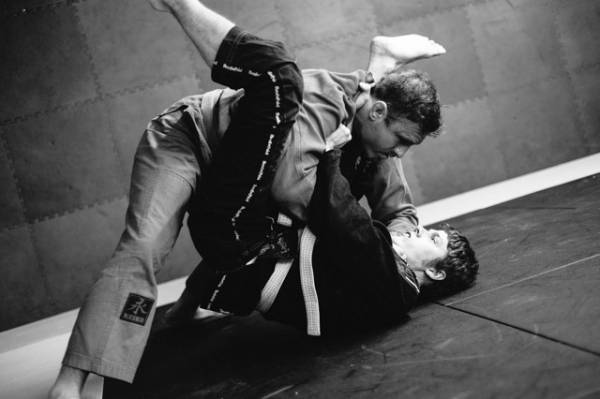Get in the Zone (of Proximal Development) in Your Coaching
4 min readThe community facet of athletic action is essential for various reasons. Our sports communities supply assistance, truth checks, and beneficial information about suitable actions. And notably, our community connections are also vitally essential influences on our true mastering.
For as prolonged as I have been education jiu jitsu, from my really earliest, flailiest encounters up to the current, my academics and education companions have assisted me accomplish additional in partnership with them than I would be capable to by myself. Currently, I find myself undertaking for fewer knowledgeable practitioners what my academics have usually completed for me: applying my awareness to established them up for achievements. For occasion, let us say we drilled a triangle sequence for the duration of the technique element of course. Throughout the rolling element, if my partner has noticeably fewer experience than I do, I might purposefully put myself in a situation where s/he can execute the strategies we labored on earlier in the course.
In some cases the athlete sees the opening correct away and usually takes edge, sometimes my basically asking, “What do you see listed here?” does the trick, and sometimes it requires an overt comment like, “Here you can execute the strategies we labored on earlier currently,” accompanied by verbal cues at every stage. Hence, relying on the athlete’s requirements, I am capable to supply guidance to assistance him/her carry out additional than s/he would be capable to without the need of that guidance.
In mastering idea, the position I am participating in in this scenario is known as the “more well-informed other” or “more capable other,” and the psychological and actual physical area within just which the athlete and I are interacting is referred to as the “zone of proximal progress.” In his seminal 1978 book Brain in Society: The Enhancement of Better Psychological Processes, psychologist Lev Vygotsky defines the ZPD (as instructional forms like to refer to it) as “the length among the true developmental stage as identified by unbiased issue fixing and the stage of opportunity progress as identified as a result of issue fixing under grownup steerage, or in collaboration with additional capable peers.”
So what is the “so what” listed here? This almost certainly appears like what lots of of us presently do as coaches and academics, no? We assistance our athletes and pupils together, enabling them to do additional, with assistance from us, than they would be capable to otherwise.
Very well, how lots of of you have had a mentor-athlete interaction that goes anything at all like this: “Okay, Athlete X. I’m going to wander you as a result of this sequence of movements. Let’s commence with you putting your still left foot on your partner’s hip. No, your still left foot. Your Remaining foot. Remaining FOOT. No, your Remaining FOOT. No, YOUR still left foot. Ok, relax. I’m going to acquire your still left foot and put it where it belongs. OW! I know you did not indicate to kick me. It is okay. Let’s acquire 5.”
In some cases, I dislike to admit, I have shaken my head just after an experience like that, pondering what on earth is erroneous with the athlete. Very well, the remedy is: very little. What is erroneous is what I’m asking of the athlete. It turns out that Brazilian jiu jitsu is really demanding, on cognitive, neurological, muscular, and psychological levels, specifically for inexperienced persons, and if an athlete can not conduct what I am asking, I want to check with anything diverse – I want to be in the correct zone with them.
Much more recently, when I instruct or mentor, the ideas of the ZPD and the additional well-informed/capable other have assisted me comprehend that sometimes I may well be asking much too a great deal of somebody, even if I believe I am successfully scaffolding them (an additional term affiliated in mastering idea with the ZPD). Possibly they just aren’t in this unique zone still. That is neither good nor negative. It is just beneficial information that can assistance me superior tailor my coaching so as to additional successfully established up athletes for achievements.
Knowledge the mastering approach in this way allows me as a mentor in several approaches. Very first, it allows me to stay additional patient than I would otherwise be capable to, mainly because I comprehend the mechanism at get the job done. I know the athlete is not remaining obtuse and is undoubtedly not uncoachable. Second, it provides me beneficial suggestions about how I might additional successfully regulate my expectations and my requests of the athlete towards a additional thriving consequence. I can reposition the ZPD to make guaranteed the athlete is squarely in it. And at last, it reminds me of how inherently social helpful mastering is if we want to make guaranteed we assistance our athletes do additional than they believe they can, we need to believe it for them initial and exhibit that perception in every interaction we have with them.
How might you make the strategy of ZPD get the job done for you, no matter if as a mentor or as an athlete? Post your observations to comments.
Photograph 1 courtesy of Shutterstock.
BJJ photo provided by David Brown Images.








